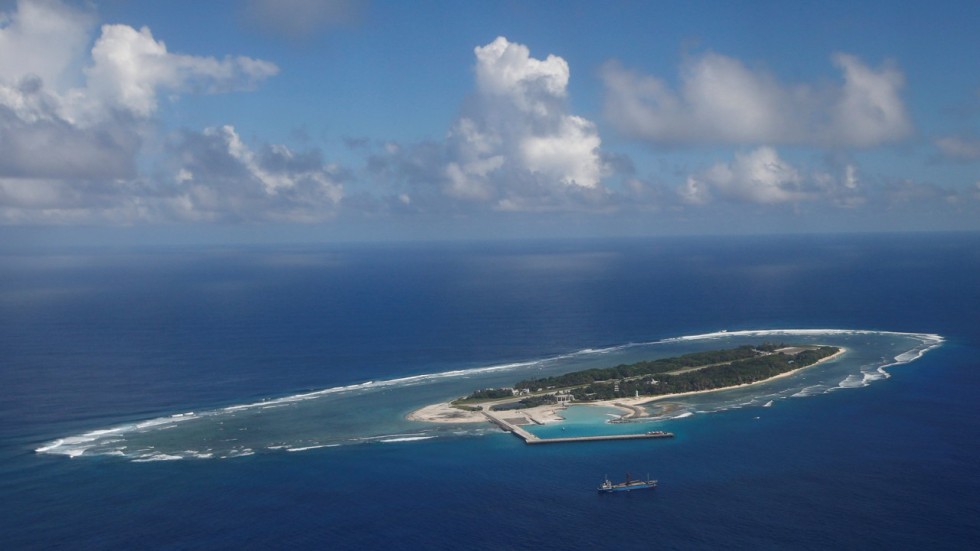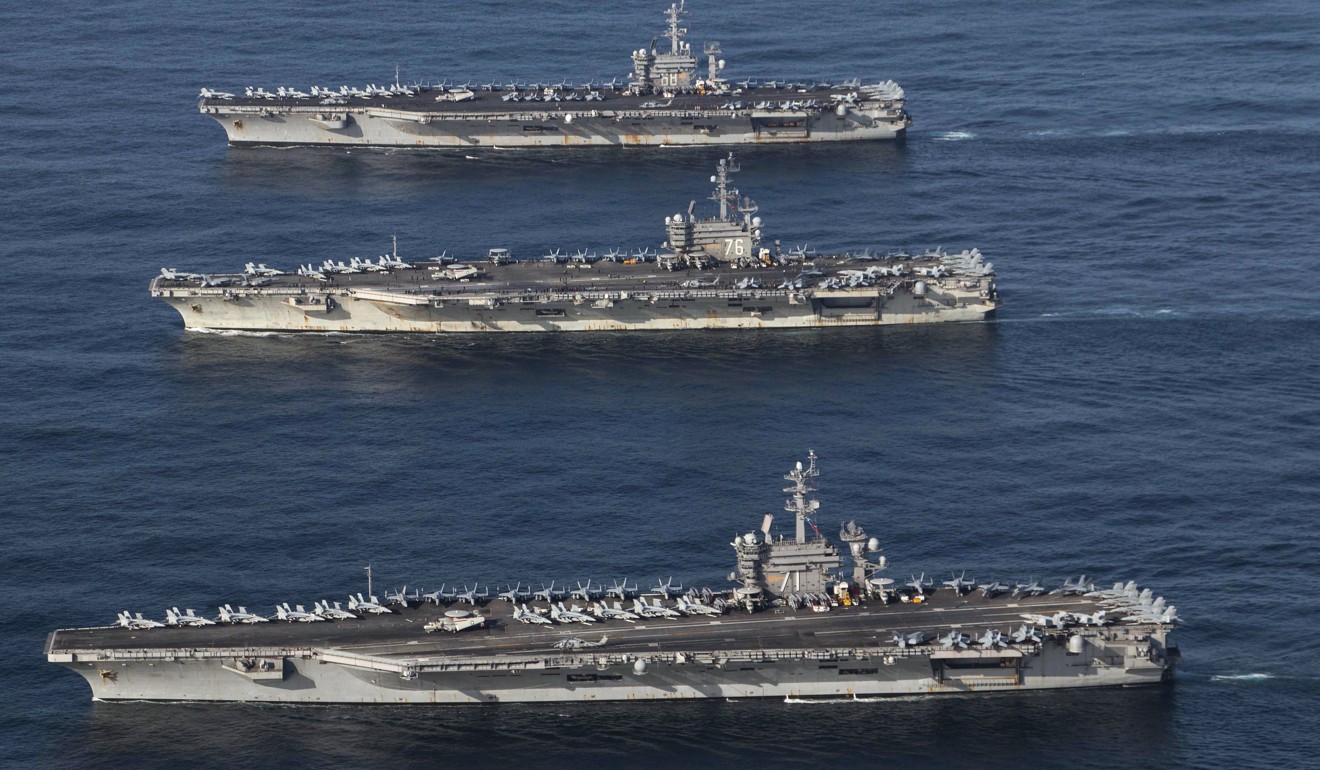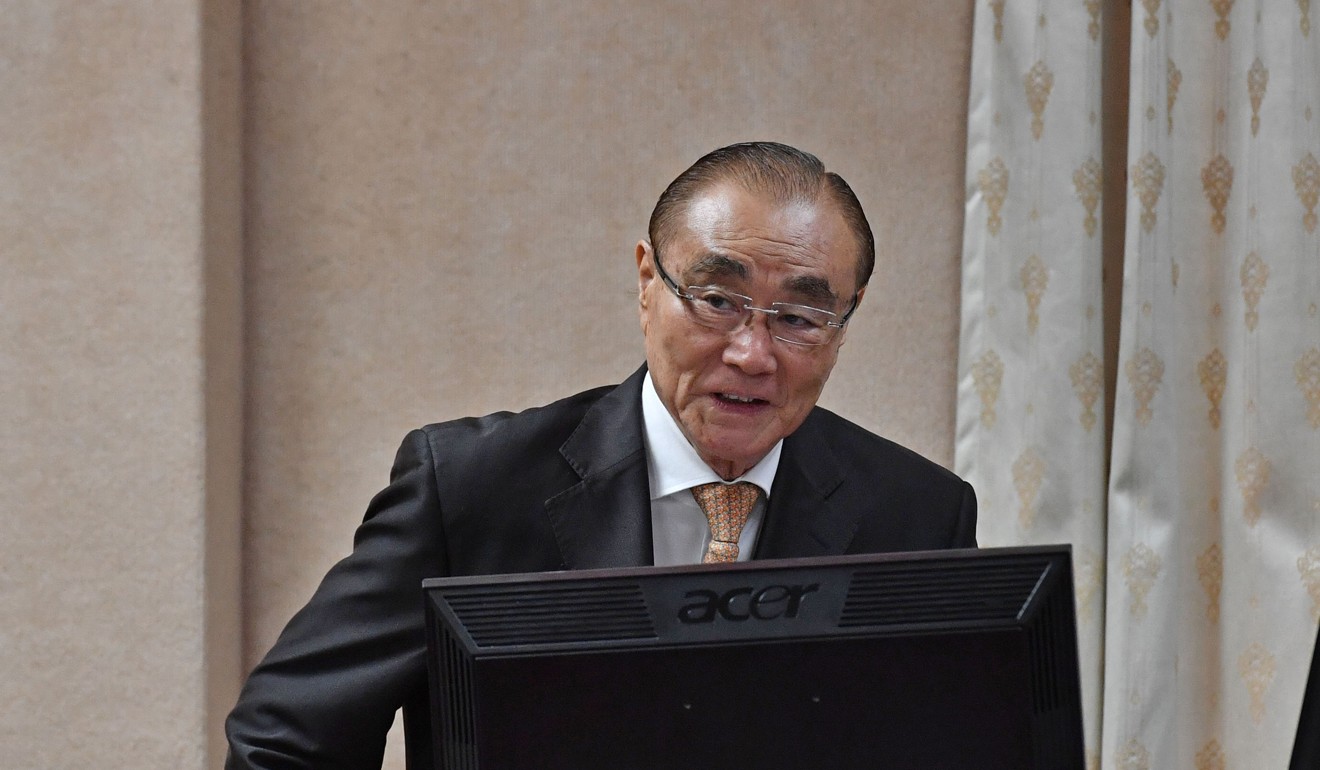Lawrence Chung
 A Taiwanese think tank has called on Taipei to lease part of a Taiwan-controlled islet to the US military, a highly explosive move certain to infuriate Beijing and escalate tensions in the South China Sea if realised. The bold proposal by some experts of an unnamed pro-independence think tank calls for the Pentagon to set up a base on Taiping Island for humanitarian and rescue operations, according to local news media. Taiping, the biggest islet in the Spratly chain, is technically controlled by Taiwan, though an international arbitration tribunal has ruled that it is merely a land formation over which no claimants are entitled to claim sovereignty.
A Taiwanese think tank has called on Taipei to lease part of a Taiwan-controlled islet to the US military, a highly explosive move certain to infuriate Beijing and escalate tensions in the South China Sea if realised. The bold proposal by some experts of an unnamed pro-independence think tank calls for the Pentagon to set up a base on Taiping Island for humanitarian and rescue operations, according to local news media. Taiping, the biggest islet in the Spratly chain, is technically controlled by Taiwan, though an international arbitration tribunal has ruled that it is merely a land formation over which no claimants are entitled to claim sovereignty.
Citing an unnamed source, the Taiwan edition of Next Magazine reported on Monday that some researchers from the think tank suggested Washington could benefit from stationing troops on Taiping as it continued to face off with Beijing over the South China Sea.

Beijing has established military strongholds on artificial islands it has built in the waters, while Washington can only shore up its position by sending warships on patrols through the region, the source was quoted as saying.
The scholars said that leasing part of Taiping to the US military would not only allow the US to have a military base in the South China Sea but would also indirectly help Taiwan uphold its sovereignty over Taiping.
Taiping is also claimed by Beijing, Manila and Hanoi.
The report said the proposal was supported by a number of senior military officials.
But one military source told the South China Morning Post that it was “unlikely” the defence ministry would agree to such a proposal.
“It would not only further escalate the tensions in the South China Sea and the region, but would also bring high risks to Taiwan,” the source said.
“Actually, it is not the first time we have heard this kind of proposal.”

The source said the idea was raised soon after Tsai Ing-wen of the independence-leaning Democratic Progressive Party (DPP) became president in 2016.
At the time, Taiwan was waiting for the Permanent Court of Arbitration in The Hague to hand down its decision in a case brought by the Philippines against China over claims to a vast part of the South China Sea, including Taiping.
Then defence minister Feng Shih-kuan firmly rejected the idea, saying he “will never agree with it”, the source quoted Feng as saying.
Military expert Lu Li-shih said that if the government did go ahead and lease Taiping to the US military, “China would apply even stronger pressure to squeeze Taiwan”.
Beijing considers self-ruled Taiwan to be a wayward province subject to eventual unification, by force if necessary. It has warned other countries against offering military help to the island and suspended official exchanges and talks with Taipei since Tsai took office and refused to accept the “one China” principle.
DPP legislator Wang Ding-yu said the prospect of further escalation the region’s tension and the willingness of the US to lease Taiping would have to be factored into any decision on the proposal.
“We need to think from various angles about whether the proposal is actually in Taiwan’s interests,” Wang said.
Opposition Kuomintang legislator Lee Hsiu-yen said the Tsai government must assess it could bear all the consequences and pressure from a highly provoked Beijing.
No comments:
Post a Comment